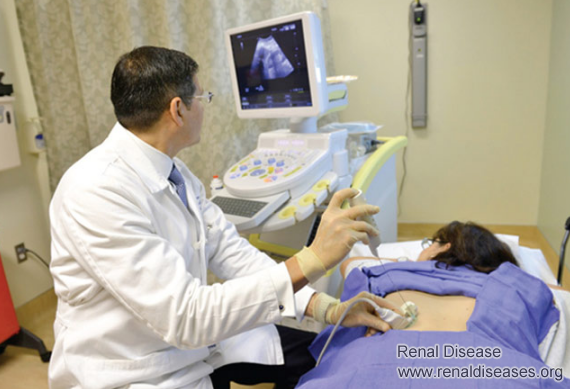Whatsapp: +8615512139310
- Email us:

When a kidney patient is diagnosed with kidney disease, the doctor makes a clinical diagnosis. Clinical diagnosis can determine whether it is glomerular disease or renal tubular interstitial disease; Nephritis Syndrome, Nephrotic Syndrome, or renal failure.
But in the actual practice of kidney disease treatment, only clinical diagnosis is often not enough. In such a case, pathological diagnosis is needed to see what kind of kidney disease is. For kidney diseases of different pathology, the treatment way is also different.
The most accurate pathological diagnosis is renal biopsy. But in fact, many patients do not need it, but laboratory examination.
The following are common pathological laboratory examination and diagnosis methods:
1. Occur more in children. It is often manifested as a large number of proteinuria, which is usually selective proteinuria and albuminuria. Hematuria is rare, and microscopic hematuria only occurs in about 20% of patients.
2. Generally it is not accompanied by high blood pressure or impaired renal function. And obvious edema is often accompanied by prerenal azotemia.
3. Low albuminemia, low immunoglobulinemia are easy to be complicated by infection.
4. Serum complement levels are normal.
1. More than 80% of the patients show non-selective urinary protein and increased IgG in urine.
2. Renal tubule function is impaired. (the levels of NAG and retinol-binding protein (RBP) in urine increase and the osmotic pressure in urine decreases.
3. Serum IgG level is significantly decreased and complement is normal.
4. Hypertension and kidney damage occurs in early stage.
5. About 2/3 of FSGS patients have hematuria under the microscope. And there are red blood cells with polymorphy in urine.
1. Positive antibody against phospholipase A2 receptor;
2. Urinary protein quantification is usually > 3.5g/d, but rarely exceeds 15 g/d;
3. About half of the patients have microscopic hematuria, but a large amount of microscopic hematuria is not characteristic of membranous nephropathy.
4. Hypoalbuminemia, plasma albumin <30g/L
5. Hyperlipidemia, mainly cholesterol elevation;
6. The autoantibodies are negative and the serum complement level is normal
7. HBV and HCV markers are negative.
IgA nephropathy is a glomerulonephritis characterized by IgA deposition in the mesangial region of the glomerulus. Common laboratory tests are:
1. Urinary RBC>5/HPF, and the typical symptom is malformed erythrocyte urine.
2. Continuous proteinuria >0.5g/ day, mostly non-selective proteinuria.
3. Serum IgA value of some patients increase, with IgA>3.15g/L.
4. IgA/C3>3.01
5. Gross hematuria appears after upper respiratory tract infection or tonsillitis attack. When infections are controlled, gross hematuria disappears or reduces;
6. About 40% of patients have hypertension, and patients with hypertension may be accompanied by varying degrees of hematuria, proteinuria and renal insufficiency as well as hyperuricemia.
Most patients can be treated after the above diagnosis with traditional Chinese medicine to reduce side effects, improve efficacy and reduce recurrence rate.
If there is still a large amount of proteinuria, and laboratory examination is difficult to determine the pathological type, renal biopsy is required for pathological diagnosis.
For more information on CKD diagnosis, please leave a message below or contact online doctor.